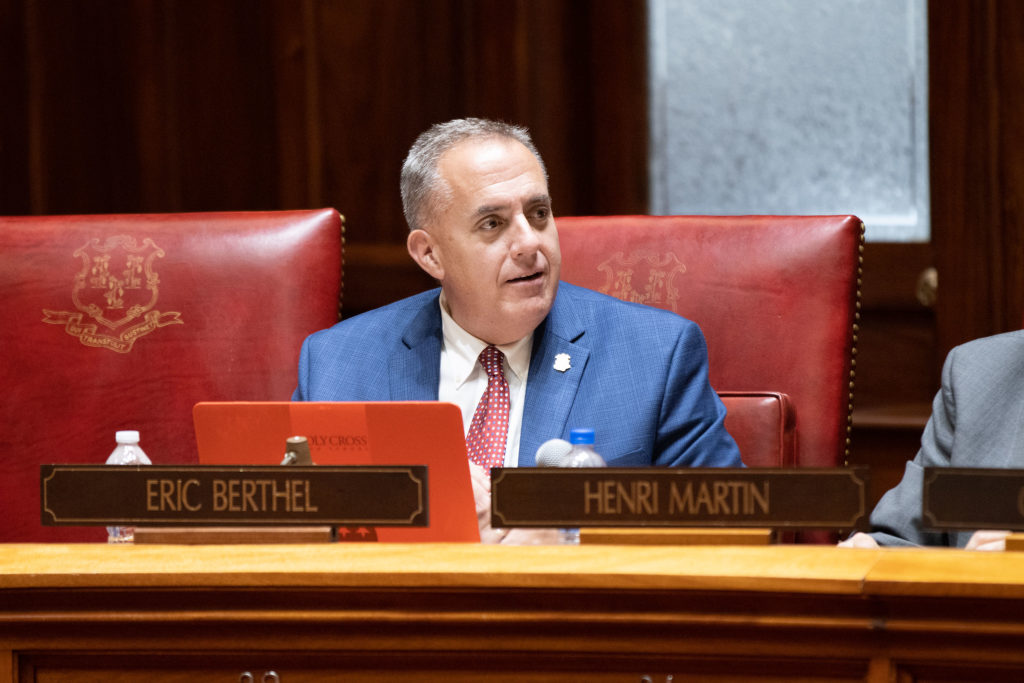2021 Regular Session & June Special Sessions Recap
June 21, 2021The 2021 Regular Session concluded just as it began in January: like none other in history. I was honored to be sworn in on that cold January day to again represent you in the 32nd District. Since that time, the regular session adjourned last week on June 9, and the Senate convened in two special sessions this week because of the Democrat-majority’s Recreational Marijuana Bill–a bad bill that I oppose.
Below is an update on key pieces of legislation that passed during these sessions.
2021 Regular Session
What’s Good
Rights for Long-term Care Residents (S.B. 975): Gives nursing home residents the right to treat their living area as their own home, and therefore allows residents to use all forms of virtual communication, including in-room video technology, to communicate privately with family and loved ones.
Workers’ Compensation Benefits for First Responders (H.B. 660): Expands eligibility for workers’ compensation benefits for post-traumatic stress injuries (PTSI) to cover emergency medical services (EMS) personnel, all Department of Correction (DOC) employees, telecommunicators (i.e. 9-1-1 emergency dispatchers) and–under certain circumstances related to COVID-19–health care providers. The bill also changes the terminology used in the law by replacing “post-traumatic stress disorder” (PTSD) with “post-traumatic stress injury.”
Online Gaming/Sports Wagering (H.B. 6451): Allows the CT Lottery and Mashantucket Pequot/Mohegan Tribes to accept wagers on sports as well as virtual versions of slots and table games for those age 21 and older, and located in the state. The CT Lottery will also be able to contract with a third-party vendor to operate brick-and-mortar wagering sites.
Expanded Telehealth (H.B.5596): Extends the Governor’s emergency order to help providers address COVID-19 until June 30, 2023. The bill enables providers like dentists, therapists, physician assistants and behavioral healthcare providers to use telehealth, allows audio-only telehealth services and allows licensed providers from other states to treat Connecticut residents via telehealth.
groups from across the state and beyond rallied at the Capitol in Hartford.
I was pleased to listen to their stories and offer thanks for making their voices heard.
What’s Bad
“Clean Slate” for Offenders (S.B. 1019): Democratic-majority bill erases certain misdemeanors and specified class D and E felonies if the offender does not commit any other crimes for seven or 10 years, depending on their conviction. The clock resets if the offender commits another crime. The original version of the bill passed by the Senate Democrat majority included even more egregious offenses that were stripped out before final passage.
“Truck Tax” (H.B. 6688): Creates a mileage tax on trucks in Connecticut. Although this tax does not directly apply to residents, the extra cost to trucking companies and, by extension, Connecticut businesses, will ultimately be passed onto consumers with increased prices on groceries, home heating oil and more.
Zoning Reform (H.B. 6107): Generally, this bill eliminates local control over certain town zoning decisions. It mandates that towns allow single-family homeowners to convert parts of the structure or detached garages into what is called an “accessory dwelling unit” without the town’s permission. The law also states that towns may opt out through a vote. The bill places limits on how many parking spaces a new home or apartment must have — but also allows towns to vote to opt out.
Child Vaccine Religious Exemption Elimination (HB 6423): This bill was quietly signed into law by Governor Lamont shortly after passage. It eliminates the religious exemption from the state’s immunization requirement for K-12 students in both public AND private schools. The state constitution still requires Connecticut provide a public education to all students. Therefore, legal challenges are expected.
Special Sessions: June 15 & 17
Budget/Budget Implementer
The two-year $46.4 billion state budget passed the Senate and House on the final day of the regular session. The budget holds the line on taxes for now, but is heavily reliant on billions in federal COVID relief aid. As such, the spending in the budget includes this federal “revenue” that is one-time only. This increase in spending will ultimately put us on a fiscal cliff in 2023. Therefore, I did not support the budget because of its negative long-term consequences for taxpayers.
We convened this week for a special session on Tuesday to vote on the budget “implementer.” This bill should be a technical document that serves one purpose: to implement the budget as written.
Instead, majority Democrats and the Lamont administration presented us with a 837-page document at 3 AM prior to the Senate’s Tuesday special session. There were many unrelated, progressive wish-list policy items that failed during the regular session.
Recreational Marijuana
The Senate also convened on Tuesday to take up the Recreational Marijuana bill for, at the time, a second vote because of amendments made by the House.
We then reconvened in the Senate two days later on Thursday to vote on the bill for a third time. This highly unusual circumstance was a result of disorder between Senate and House Democrats and the Governor’s administration. The issue behind the multiple amendments and votes was an equity provision in the bill that mandates how the state will prioritize licenses.
I opposed every version of the bill because it places public health and safety in Connecticut at severe risk.
Thank you for the opportunity to again serve you in Hartford. I will keep you updated with other developments at the Capitol and look forward to seeing you in our beautiful district during the summer months.


